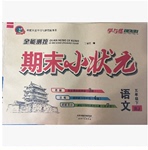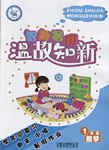题目内容
Take a class at Dulangkou School, and you’ll see lots of things different from other schools, You can see the desks are not in rows(排)and students sit in groups. They put their desks together so they’re facing each other. How can they see the blackboard? There are three blackboards on the three walls of the classroom!
The school calls the new way of learning “Tuantuanzuo”, meaning sitting in groups. Wei Liying, a Junior 3 teacher, said it was to give students more chances to communicate.
Each group has five or six students, according to Wei, and they play different roles(角色).There is a team leader who takes care of the whole group. There is a “study leader”who makes sure that everyone finishes their homework. And there is a discipline(纪律)leader who makes sure that nobody chats in class.
Wang Lin is a team leader. The 15-year-old said that having to deal with so many things was tiring.
“I just looked after my own business before,”said Wang. “But now I have to think about my five group members.”
But Wang has got used to it and can see the benefits(好处)now.
“I used to speak too little. But being a team leader means you have to talk a lot. You could even call me an excellent speaker today.”
Zhang Qi, 16, was weak in English. She used to get about 70 in English tests. But in a recent test, Zhang got a grade of more than 80.
“I rarely(很少) asked others when I had problems with my English tests. But now I can ask the team leader or study leader. They are really helpful.”
1.What makes Dulangkou School different from others?
A. The students desks are in rows.
B. Students sit and study in groups.
C. There are three blackboards in the classroom.
D. Both B and C.
2.A discipline leader is supposed to .
A. take care of the whole group
B. make sure that everybody finishes homework
C. make sure that nobody chats in class
D. collect all the homework and hand it in to teachers
3.The new way of learning is said to give students more chances to .
A. chat with each other B. listen to the teacher
C. make friends D. communicate
4.We can see from the story that some students this new way of learning.
A. get benefits from B. are tired of C. cannot get used to D. hate
5.How many leaders are there in one group?
A. Three. B. Four. C. Two. D. Five or six.
1.D
2.C
3.D
4.A
5.A
【解析】略

 全能测控期末小状元系列答案
全能测控期末小状元系列答案 智趣暑假温故知新系列答案
智趣暑假温故知新系列答案The school calls the new way of learning “Tuantuanzuo”, meaning sitting in groups. Wei Liying, a Junior 3 teacher, said it was to give students more chances to communicate.
Each group has five or six students, according to Wei, and they play different roles(角色).There is a team leader who takes care of the whole group. There is a “study leader”who makes sure that everyone finishes their homework. And there is a discipline(纪律)leader who makes sure that nobody chats in class.
Wang Lin is a team leader. The 15-year-old said that having to deal with so many things was tiring.
“I just looked after my own business before,”said Wang. “But now I have to think about my five group members.”
But Wang has got used to it and can see the benefits(好处)now.
“I used to speak too little. But being a team leader means you have to talk a lot. You could even call me an excellent speaker today.”
Zhang Qi, 16, was weak in English. She used to get about 70 in English tests. But in a recent test, Zhang got a grade of more than 80.
“I rarely(很少) asked others when I had problems with my English tests. But now I can ask the team leader or study leader. They are really helpful.”
【小题1】What makes Dulangkou School different from others?
A. The students desks are in rows.
B. Students sit and study in groups.
C. There are three blackboards in the classroom.
D. Both B and C.
【小题2】A discipline leader is supposed to .
| A.take care of the whole group |
| B.make sure that everybody finishes homework |
| C.make sure that nobody chats in class |
| D.collect all the homework and hand it in to teachers |
| A.chat with each other | B.listen to the teacher |
| C.make friends | D.communicate |
| A.get benefits from | B.are tired of |
| C.cannot get used to | D.hate |
| A.Three. | B.Four. | C.Two. | D.Five or six. |
Take a class at Dulangkou School, and you’ll see lots of things different from other schools, You can see the desks are not in rows(排)and students sit in groups. They put their desks together so they’re facing each other. How can they see the blackboard? There are three blackboards on the three walls of the classroom!
The school calls the new way of learning “Tuantuanzuo”, meaning sitting in groups. Wei Liying, a Junior 3 teacher, said it was to give students more chances to communicate.
Each group has five or six students, according to Wei, and they play different roles(角色).There is a team leader who takes care of the whole group. There is a “study leader”who makes sure that everyone finishes their homework. And there is a discipline(纪律)leader who makes sure that nobody chats in class.
Wang Lin is a team leader. The 15-year-old said that having to deal with so many things was tiring.
“I just looked after my own business before,”said Wang. “But now I have to think about my five group members.”
But Wang has got used to it and can see the benefits(好处)now.
“I used to speak too little. But being a team leader means you have to talk a lot. You could even call me an excellent speaker today.”
Zhang Qi, 16, was weak in English. She used to get about 70 in English tests. But in a recent test, Zhang got a grade of more than 80.
“I rarely(很少) asked others when I had problems with my English tests. But now I can ask the team leader or study leader. They are really helpful.”
【小题1】What makes Dulangkou School different from others?
A. The students desks are in rows.
B. Students sit and study in groups.
C. There are three blackboards in the classroom.
D. Both B and C.
【小题2】A discipline leader is supposed to .
| A.take care of the whole group |
| B.make sure that everybody finishes homework |
| C.make sure that nobody chats in class |
| D.collect all the homework and hand it in to teachers |
| A.chat with each other | B.listen to the teacher |
| C.make friends | D.communicate |
| A.get benefits from | B.are tired of |
| C.cannot get used to | D.hate |
| A.Three. | B.Four. | C.Two. | D.Five or six. |